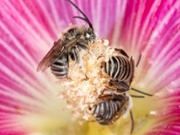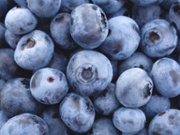|
|
 
|
Top Story
| |
 |
| (TorriPhoto/Getty Images) |
A study has found that humans and bees share ancient genetic roots for social behavior. By tracking honeybee actions and analyzing their genes, researchers discovered 18 genetic variants linked to social interactions, particularly food sharing. The findings, published in PLOS Biology, suggest that sociability is deeply embedded in biology, with humans and bees retaining similar genes for social behavior despite diverging over 600 million years ago. |
|
|
 | Learn it Today. Use it Tomorrow.
At USD, our 100% online MS in Cyber Security Operations and Leadership will help you take your cyber leadership to the next level while allowing you the flexibility to create your own schedule. Application waiver is available when you apply by 11/3. |
|---|
| |
|
|
 
|
Science in the News
NASA and the National Oceanic and Atmospheric Administration predicted a mild Solar Cycle 25, but the sun has been much more active, with activity increasing since 2008, according to a study in The Astrophysical Journal Letters. "The longer-term trends are a lot less predictable and are something we don't completely understand yet," says Jamie Jasinski, an author of the study. |
|
Scientists in Taiwan have developed a polyurethane organogel that can stretch up to 46 times its original length and self-heal at room temperature, according to a study in Advanced Functional Materials. The color-changing organogel's unique properties make it a promising candidate for use in flexible electronics, soft robotics and anti-counterfeiting measures. |
|
Engineers have developed a prototype rocket engine that uses molten uranium as fuel, potentially halving the time required to reach Mars, according to a study in Acta Astronautica. However, significant engineering challenges remain, including containment of uranium and efficient operation. |
|
A study published in Science of the Total Environment suggests that methane explosions in Siberia are caused by a combination of thawing permafrost and geological faults. The study used computer models to show that gas and heat rising from deep underground become trapped beneath the permafrost, and as the permafrost melts, the pressure builds and eventually causes explosions. |
|
|
Research presented at the European Society of Cardiology Congress highlights the cardiovascular benefits of vaccines against influenza, respiratory syncytial virus and herpes zoster. The studies showed that these vaccines can reduce hospitalizations and cardiovascular events, even though messaging focused on cardiovascular benefits did not increase vaccine uptake.
|
|
| |
 |
| (Pixabay) |
Introducing blueberries as one of an infant's first solid foods may enhance immune function and gut health, according to a study published in Frontiers in Nutrition. The research shows that infants consuming freeze-dried blueberry powder experience improved allergy symptoms, reduced inflammation and beneficial changes in gut microbiota. |
|
|
 | Is Your Data Ready for Scaling AI?
Harness the power of your data—don't let silos hinder you. Struggling to merge customer info or personalize? Google Cloud and Salesforce show how to shatter silos, align AI models with unified data, and refine customer insights. Register now. |
|---|
| |
|
|
 
|
Funding Watch
|
The Washington University School of Medicine secured a grant from Defense Department of $4.87 million to develop a diagnostic device for sepsis. The handheld device aims to quickly classify sepsis patients based on their inflammatory response, potentially improving treatment outcomes, and will be designed to be affordable, portable and suitable for use in critical care settings, including military and rural hospitals.
|
|
|
 | Back-to-School Tips That Work
The new school year is back! And we want to help you kick it off right. This back-to-school guide is designed to inspire and equip you for success. Read it now to get expert tips, fresh ideas, and real-world strategies you can use starting today. |
|---|
| |
|
|
 
|
Play Paths to Power bonus path
|
Yeahhh… gonna need you to finish.
You've come this far. The bonus path is basically the TPS report of quests—but this one's actually fun. New chaos. Quirky riddles. And maybe even some flair. You found the Wizard of Lite, now he joins you for one final quest to truly bring calm to this digital, mystical land. Play Game
|
|
 
|
Sigma Xi News
|
The International Forum on Research Excellence (IFoRE) is going virtual for 2025. Same cutting-edge research, student awards, innovative talks and mentoring from thought leaders across the global research enterprise -- accessible for every budget and location.
|
|
|
STEM students -- Don't miss your chance to submit your grant application for the fall cohort of Grants in Aid of Research. Undergraduate and graduate students have until October 1 to apply. Sigma Xi members qualify for grants up to $5,000.
|
|
|
| | |
